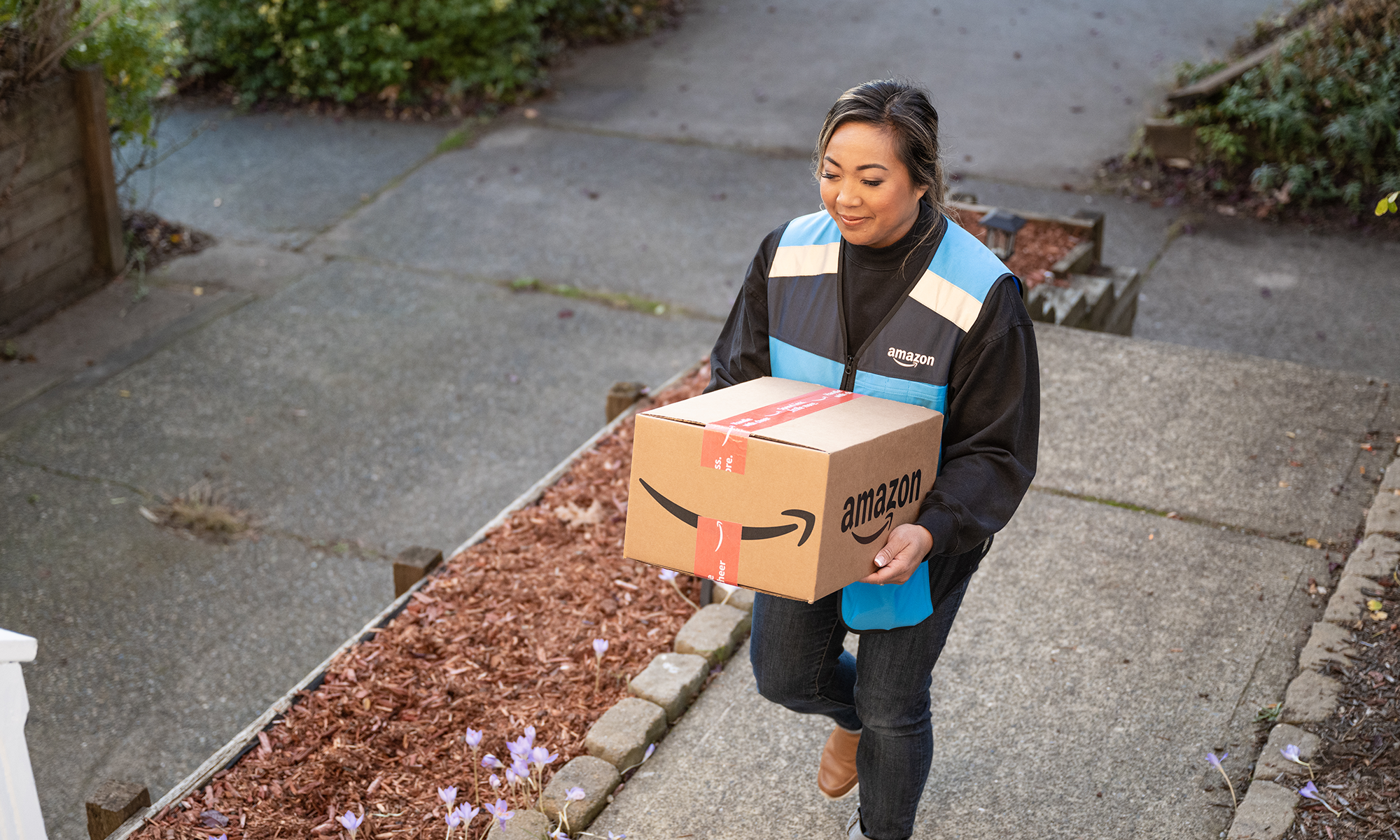A surprising rumor -- that was soon retracted by the person who started it -- washed over the retail world recently. The off-hand remark indicated that Amazon.com (AMZN 4.18%) was planning on opening 300-400 bookstores across the country.
Sandeep Mathrani, CEO of mall operator General Growth Properties, speaking of the e-commerce giant on his company's earnings call, said that "their goal is to open, as I understand, 300 to 400 bookstores." After being pressed for further details, Mathrani walked back those remarks, and could not say where he had heard such news. In a TechCrunch article, a source close to Amazon said the company had no such plans, but expectations of such a launch rightfully persist.
Built on the power of online commerce, Amazon has started dabbling in physical retail in recent years. The company has experimented with mall-based kiosks during the holiday season, and opened its first store late last year, Amazon Books, in a high-end Seattle shopping center called University Village. Most of the space is devoted to books, but the store still carries a limited selection, showcasing titles with Amazon ratings of 4.8 or more, and other bestsellers.

Most of the store is devoted to books, but a central section features gadgets like the Fire TV and Echo. On Yelp, the store receives mostly positive reviews, though it remains to be seen whether Amazon will expand the concept.
The unlikely survival of the bookstore
A few years earlier, it seemed like the ink was drying on the obituary of the modern-day bookstore. Borders had shut its doors, and Barnes & Noble (BKS +0.00%) was flailing, closing stores each year in a slow retreat against Amazon. E-books had been popularized, and Amazon offered the lowest prices, with hundreds of reviews, and free two-day shipping for Prime members.
Today, that narrative has shifted. Thanks to a new contract with major publishers, e-book prices have risen, and are now generally even with print books. Independent bookstores have made a comeback, with the number of stores climbing 27% from 2009 to 2014. With the popularity of e-books having plateaued, independent bookstores have found a niche by offering an experience and catering to local communities.
Recognizing the lasting power of bookstores, it may be no surprise that Amazon now wants to plant its flag in the brick-and-mortar world.
Borrowing from the best
No company has been more successful with its transition to retail than Apple (AAPL +0.31%). The iPhone maker surprised observers when it launched its retail format, but the stores have become an undeniable success. Not only do they drive sales of Apple products and beat all other retailers in sales per square foot, but they also act as an extension of the brand, reinforcing the magic of Apple products.
Microsoft followed Apple into retail, borrowing the same concept of using brick-and-mortar spaces to drive sales of software and devices like the Surface. Microsoft now has several dozen stores in the U.S., while Apple has close to 300.
If Amazon seeks to have a retail presence in the U.S., borrowing the Apple model would be more useful than launching a chain of hundreds of mall-based bookstores. Building one or two Amazon stores in major cities, and focusing them on Amazon's gadgets, which would benefit from an in-person experience more than books, would make them a destination, and help to inject its family of products with the sort of brand halo that Apple has.
An Amazon bookstore, on the other hand, seems to undermine the principles behind Amazon.com, which is to stock more titles than are available in any bookstore, and sell for lower prices. It also has the Kindle, which has obviated the need for print books.
Amazon junkies may enjoy visiting a brick-and-mortar iteration of Amazon, but it's unlikely to win over any converts. Amazon rules the book world; it's a known entity by now. Bookstore devotees who have resisted have done so for a reason. They likely prefer the charm and quirks of an independent store.
Amazon's brand started with books, but the company has become such a force by moving beyond the printed word. Its stores, if they ever come to fruition, must do the same.







